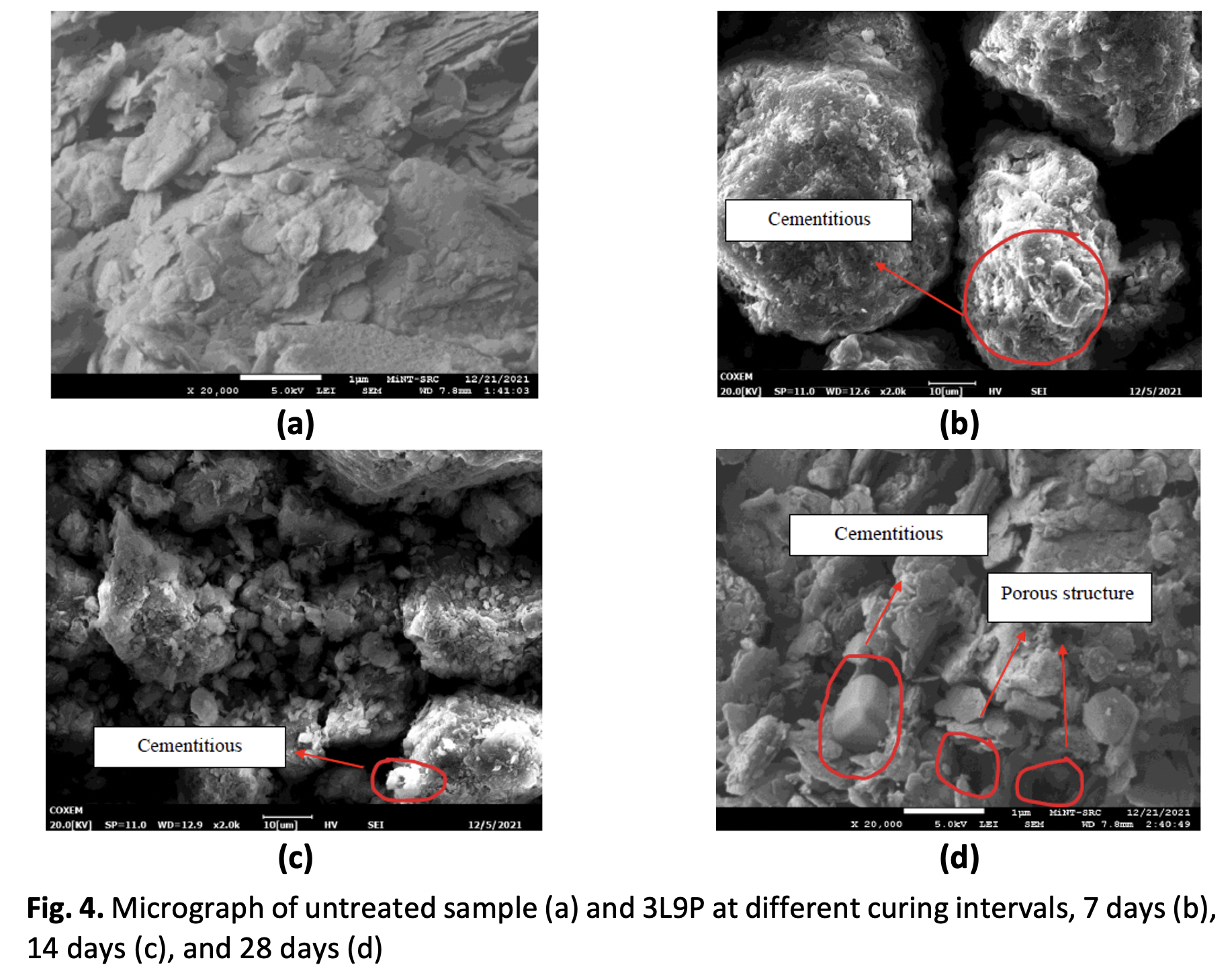Influence of Biomass Silica Stabilizer on Unconfined Compression Strength of Sodium Silicate Stabilized Soft Clay Soils
DOI:
https://doi.org/10.37934/araset.28.1.97105Keywords:
Clay stabilizer, EDAX, liquid stabilizers, SEM, unconfined compression strengthAbstract
Soft clay often causes difficulty in construction operations with regards to strength and low hardness properties. Therefore, the need for soil stabilization is crucial in construction to ensure the stability of the soil strength and stiffness for each building to be built. This research was carried out to study the stabilization of clay in Batu Pahat using additional materials namely sodium silicate liquid and biomass silica powder. Soft clay samples were collected from the Research Centre for Soft Soils of Universiti Tun Hussein Onn Malaysia. The result shows that the liquid limit of the soil decreases while plastic limit increases with the addition of sodium silicate and biomass silica. As a result, the plasticity index reduces with the increment of both stabilizer's content. The strength increases at as early as 3 days after stabilization and constantly increases from 7 to 28 days curing period. The results of the unconfined compression strength test showed that the optimum amount of this stabilization process for the soil sample was three and nine percents of sodium silicate and biomass silica stabilizers, respectively. Additionally, the voids were filled with a stabilizing substance during the SEM testing. Cementation product was detected via the SEM test as a result of the stabilizer given to treated samples. The EDAX test established that the appearance of the Calcium element in the treated sample is a result of the stabilizer's chemical composition. This study demonstrates how biomass Silica significantly affected the increase in soil strength by creating cementation in the soft clay structure. Furthermore, sodium silicate plays a role in increasing soil strength, largely by acting as a binder between soil particles.Downloads
Download data is not yet available.





























